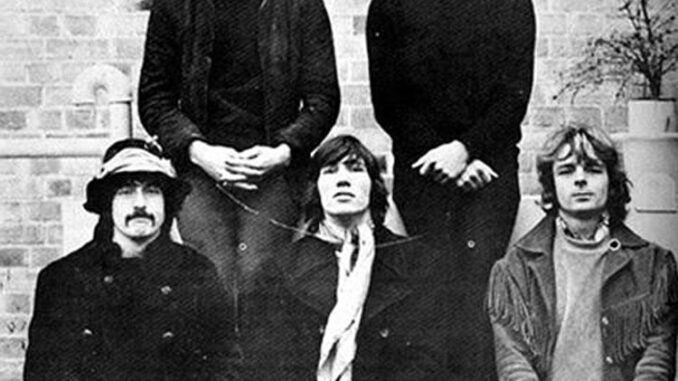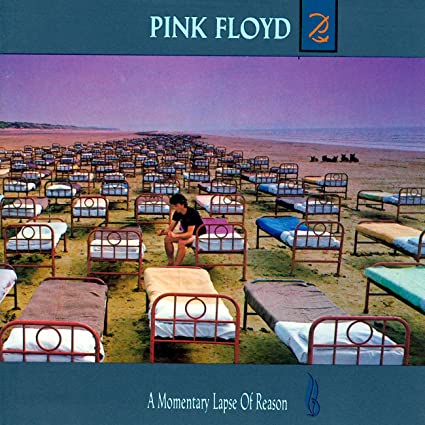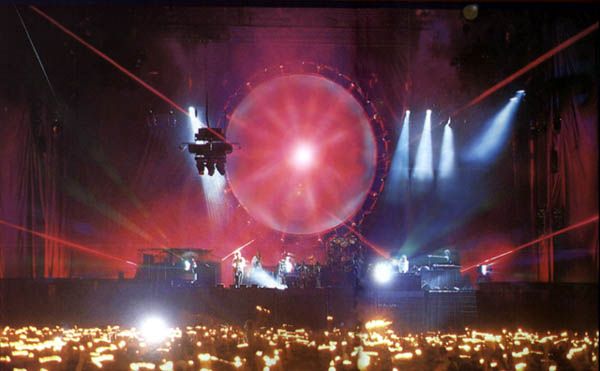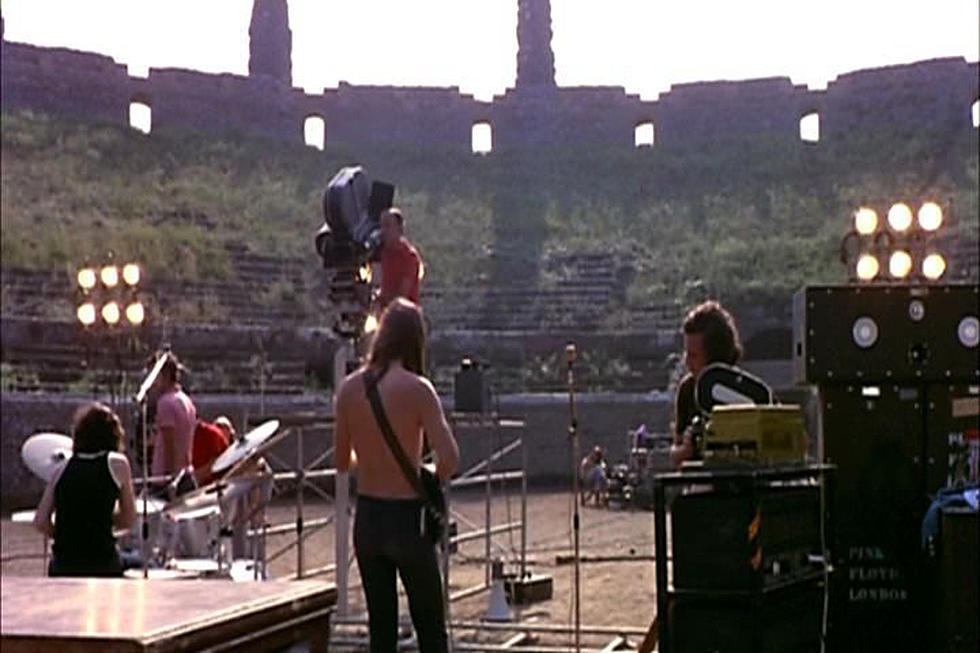
Welcome to the launch of our new Arts & Entertainment column, The Best vs. The Worst. Each week, the staff of The New Paltz Oracle reviews their favorite and least favorite work by an artist, or work in a series. Best and worst composition by Beethoven? Best and worst book in the Harry Potter series? Best and worst role Leonardo DiCaprio ever took? All of this, and more, is fair game for the column.
In this inaugural edition, Arts and Entertainment Editor Matt McDonough examines what he believes to be the best — and worst — Pink Floyd albums.
Pink Floyd is my favorite band, for a lot of reasons. For one thing, they’re one of those rare bands that not only have a unique, immediately identifiable style, but also sound different on just about every album. They occupy a weird intersection between psychedelia, hard rock, jazz and blues that has inspired thousands but has never been replicated. Their songs sound both like freeform jam sessions and tightly crafted jazz compositions at the same time. Think of classical ballet set to an electric guitar and a gallon of acid.
Another thing is their incredibly high level of quality and consistency despite their 30 year career, and in spite of having one of the most tumultuous creative processes in rock history. Between their original leader Syd Barrett’s declining mental health and ousting in the ʼ60s, from the remaining members writing and performing in the shadow of that loss in the ʼ70s, to bassist and lead song-writer Roger Waters maintaining an iron grip on the band’s creative process in the ʼ80s, it’s a miracle that they made as many classics as they did. That made picking their best and worst albums a somewhat difficult process. Their worst, to me at least, is apparent, while what is their best is a tricky question.
The Worst: A Momentary Lapse of Reason (1987)
The ʼ80s weren’t a good period for Pink Floyd. By 1987, the band was in tatters. Keyboardist Rick Wright was pressured to leave during their recording of The Wall, Waters himself jumped ship and guitarist David Gilmour and drummer Nick Mason were all that was left. Waters himself tried to torpedo the band with a frivolous legal battle, so it’s an understatement to say that this record was written in dire straits. The only silver lining was that Wright was back, but in an incredibly diminished capacity due to legal issues.

Gilmour took the lead on this project, as Mason (while essential to their sound) wasn’t a creative juggernaut like his bandmates and because of Wright’s aforementioned legal troubles. To save the band, Gilmour had to do something the band never had done, from their start in 1965 to the insanity that was the Waters-era from ‘79 to ‘82. The band went full-blown commercial pop.
I will confess, there are a few things that I like about this album. I like the opening tracks, the cosmic and ambient “Signs of Life,” followed by “Learning to Fly,” which greatly reminds me of a cut from the Fripp-Belew-Bruford-Levin lineup of prog rock constituents King Crimson. In fact, Tony Levin even plays bass on this track.
It’s an uplifting piece and I read it as a song about realizing the spiritual wonder of the self. Gilmour saw it as what it’s like to experience new things and moving onto new enterprises, using his love of flying as a basis for the song.
I also like the closer “Sorrow.” I think this track is a nice meeting ground between their Wall-era hard rock tracks and the pop angle that Gilmour was pursuing. The lyrics aren’t half bad either. The opening lines are rather poetic, loaded with alliteration and assonance.
The sweet smell of a great sorrow lies over the land
Plumes of smoke rise and merge into the leaden sky
A man lies and dreams of green fields and rivers
But awakes to a morning with no reason for waking
Finally, the album cover. In all honesty, I think it might be Floyd’s best. Designed by Storm Thorgerson of the legendary graphic design company Hipgnosis, the cover is of a man awaking from a bed among a sea of empty ones along a beach. It’s a simple concept, yet visually striking and open for interpretation.
Outside of that, however, I greatly dislike the album. The production and instrumentation is stooped in the tired tropes of ʼ80s pop and rock — tinny drums playing in 4/4 time, bright, blinding guitars, obese basslines, Miami Vice synths — it’s all so dated!

To think, a year before this album released, rock was having its wig snatched off by thrash metal. Alternative rock was about to reach its apex in the ʼ90s and throw them both to the curb. AMLoR is just a huge step back considering when it was written. It’s the soundtrack to an embarrassing midlife crisis, complete with fake-looking hair plugs and gaudy sports cars.
The other songs range from forgettable to dreadful. “The Dogs of War” is an attempt at a Waters-esque anti-war track, but fails miserably. It has this chugging, bluesy beat backed by synthetic strings and a chorus of corpses. Gilmour’s lyrics are trite and are the most basic things one could say about warfare.
“One Slip” is an incredibly corny love ballad, cashing in on the classic cliches about love. “Drowned in desire, souls on fire?” Come on now. “On the Turning Away” is a cut I used to like quite a bit, but upon relistening, it’s the auditory equivalent of Xanax. Such a dreary, slow moving song. There’s an acoustic guitar on here also, and I swear on my life Gilmour bites the chord progression from “Wish You Were Here,” one of their best-known and best-written songs.
Everything after that, from “Yet Another Movie” to “Terminal Frost,” is dull, dull, dull jazz-rock that hardly deserves a mention. It’s all so boring, and I found it difficult to concentrate on these cuts during my relistens.
Pink Floyd rebounded not long after the release of the album. After the legal proceedings which saw Gilmour as the victor, he, Mason and Wright would close the book on Pink Floyd with the much more well put-together The Division Bell. A concept-album about the difficulties of communication, the collaborative process between the three was undoubtedly present, and TDB is a much more refined foray into pop music. Yet mark my words, A Momentary Lapse of Reason serves as an incredible low-point for an otherwise pristine discography.
The Best: Live at Pompeii
The question of what is the best Pink Floyd album is one that inspires debate, but a few usual suspects crop up. The Dark Side of the Moon is an obvious candidate, with its perfect cohesion of jazz, rock, blues and psychedelia. Wish You Were Here is another strong contender, with its deeply personal lyrics about the trappings of fame and the toxicity of the music industry. Animals boasts three, meaty prog-rock epics with “Dogs,” “Pigs” and “Sheep” that tackle the corrosive nature of capitalism. Some go down the road less traveled, and claim the only great Pink Floyd album was Piper at the Gates of Dawn, helmed by Syd Barret and featuring his guitar wizardry and psychedelic pop anthems.

However, while all these are excellent records I don’t believe they capture Pink Floyd at their peak. I believe that Pink Floyd is at its best when they are performing live. The studio albums, while immaculately produced, don’t quite capture their essence and virtuosity when compared to a live setting. The recording I am talking about is Pink Floyd: Live at Pompeii. Recorded in 1971 in an amphitheatre in Pompeii, Pink Floyd proved that they were the greatest band in the world in one hour, before a documentary film crew, a legion of Roman ghosts and God.
Where to begin? I believe that this recording captures the subtlety, intensity and talent of Pink Floyd perfectly. Everyone is giving it their all. Gilmour’s guitar playing is at its most raw and textured, painting massive sonic landscapes from nothing more than a black Fender Stratocaster. This recording of “Echoes” is his crowning sonic achievement.
Vocals aren’t as prominent on this recording as other Pink Floyd albums, but when Gilmour is passionately, wordlessly crying out on “A Saucerful of Secrets,” I feel as though the universe is aligning, and cannot help but to be moved. When he begs for companionship on “Echoes,” I too cannot help but feel his pain.
Waters’ bass playing is just as strong. It’s rich and full of personality. Is he the most technical man to pick up an axe? No, I don’t believe so. However, he knows exactly what to play and how to play it, and that more than makes up for any technical deficiencies. Take his work on “One of These Days,” which is driven by an Earth-shattering bassline. You can feel the intensity and grit in every rumbling chord.
His vocals contrast Gilmour’s but are just as effective. Waters’ shrieks and whispers on “Careful with That Axe, Eugene” are chilling, and his vocals on “Set the Controls for the Heart of the Sun” are serene, but carry an undercurrent of menace despite the tranquil subject matter of cycles, rebirth and change.

However, for me, the real heroes are Wright and Mason. Mason proves himself to be the rhythmic backbone of the band. His drum playing is dense, technical and powerful. You feel every snare roll, cymbal crash and double–bass kick. He’s never flailing on the drum kit. He’s completely in control, and that’s most apparent on “A Saucerful of Secrets” or “One of These Days” as he drives the pieces to their explosive and colorful climaxes.
And how can I forget about Wright. If Mason is the rhythmic backbone of the band, Wright is the backbone of the band, period. His keys bring in so much life, color and texture to the sound of Pink Floyd, and Pompeii captures that so well. Waters, when left to his own devices, creates angst driven art rock. Gilmour, when left to his, makes slick, bluesy pop-rock. Mason on his own … makes really, really screwed up jazz-rock. I know, who would have thunk it?
Wright brings a tempering force to these distaff styles. He can fall in line with Waters and Mason and can create a tight rhythm section that Gilmour improvises off of, on, say, “A Saucerful of Secrets.” Or, he can take lead with Gilmour and the two can play off one another and reinforce their sound, like on “Careful With That Axe Eugene.”
Why stop there? He steals the spotlight with Mason on “Set the Controls…” with his ghostly keys and Mason’s tribal drumming leading the track. He adds forlorn ambience on “Echoes” and can keep up with the band for the full-on, audio assault that is the climax of “One of These Days.” Wright, without a doubt, is the soul of Pink Floyd.
For me, Pompeii is the peak of Pink Floyd. Before Water’s massive ego and Gilmour’s desperate attempt to save the band, there was this brief period in Floyd’s history where each member of the band stood as an equal, and with that they made some of the best music to ever be put to film and record. Pompeii isn’t just a masterpiece. It is a triumph, a marvel. It’s a total work of art that stands in a league of its own.
